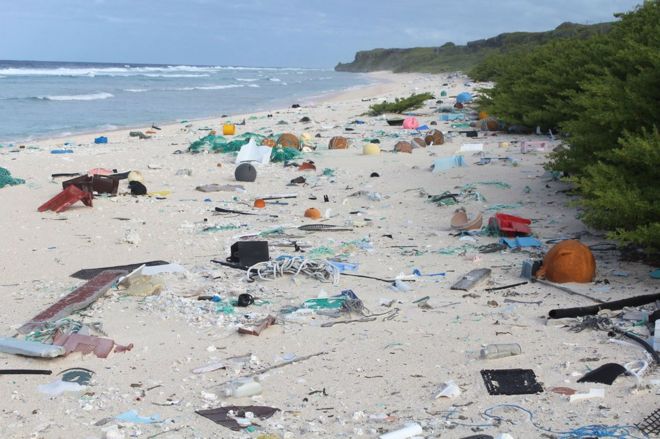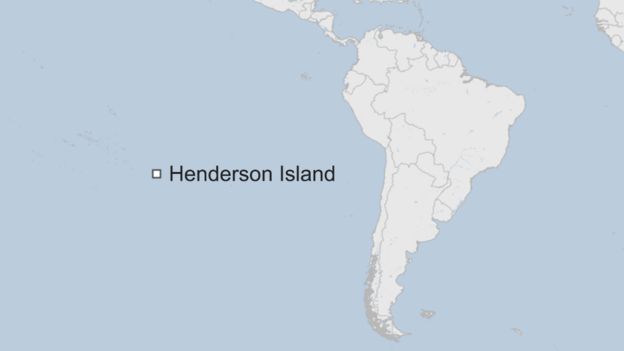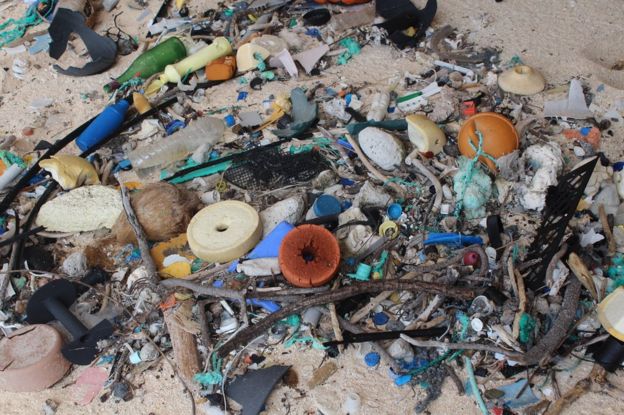- Get link
- Other Apps
Featured Post
- Get link
- Other Apps
 Image copyrightTHE UNIVERSITY OF TASMANIA
Image copyrightTHE UNIVERSITY OF TASMANIA
An uninhabited island in the South Pacific is littered with the highest density of plastic waste anywhere in the world, according to a study.
Henderson Island, part of the UK's Pitcairn Islands group, has an estimated 37.7 million pieces of debris on its beaches.
The island is near the centre of an ocean current, meaning it collects much rubbish from boats and South America.
Researchers hope people will "rethink their relationship with plastic".
The joint Australian and British study said the rubbish amounted to 671 items per square metre and a total of 17 tonnes.
"A lot of the items on Henderson Island are what we wrongly refer to as disposable or single-use," said Dr Jennifer Lavers from the University of Tasmania.

The study, published in the journal Proceedings of the National Academy of Sciences, described how remote islands act as a "sink" for the world's rubbish.
In addition to fishing items, Henderson Island was strewn with everyday things including toothbrushes, cigarette lighters and razors.
"Land crabs are making their homes inside bottle caps, containers and jars," Dr Lavers told the BBC.
"At first it looks a little bit cute, but it's not. This plastic is old, it's sharp, it's brittle and toxic."
A large number of hard hats of "every shape, colour and size" were also discovered, the marine scientist said.
Scale of waste
Henderson Island is listed by Unesco as a coral atoll with a relatively unique ecology, notable for 10 plant and four bird species.
It is 190km (120 miles) from Pitcairn Island, about 5,000km from Chile, and sits near the centre of the South Pacific Gyre - a massive rotating current.
 Image copyrightUNIVERSITY OF TASMANIA
Image copyrightUNIVERSITY OF TASMANIA
The condition of the island highlighted how plastic debris has affected the environment on a global scale, Dr Lavers said.
"Almost every island in the world and almost every species in the ocean is now being shown to be impacted one way or another by our waste," she said.
"There's not really any one person or any one country that gets a free pass on this."
She said plastic was devastating to oceans because it was buoyant and durable.
The research was conducted by the University of Tasmania's Institute for Marine and Antarctic Studies, and the Centre for Conservation Science at the Royal Society for the Protection of Birds.
Reporting by the BBC's Greg Dunlop
Source: BBC
Comments